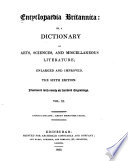 | William Blackstone - 1791 - 528 страница
...and caution that he ought. And if, after he has pleaded, the prifoner becomes mad, he fliall not be tried : for how can he make his defence ? If, after...judgment, he becomes of nonfane memory, execution fhall be ftayed : for peradventure, fays the humanity of the Englifh law, had the prifoner been of... | |
 | 1791 - 568 страница
...caution taution that he ought. And if, after he has pleaded, the prifoner becomes mad, he lhall not be" tried; for how can he make his defence? If, after he be tried and found guilty, he loles his lenfcs before judgment, judgment (hall not be pronounced ; and if, after judgment, he becomes... | |
 | William Blackstone - 1800 - 620 страница
...and caution that he ought. And if, after he has pleaded, the prifoner becomes mad, he fhall not be tried : for how can he make his defence ? If, after...guilty, he lofes his fenfes before judgment, judgment ili. ill not be pronounced ; and if, after judgment, he becomes of nonfane memory, execution fhall... | |
 | Henry Potter - 1816 - 474 страница
...and caution that he ought. And if after he has pleaded, the prisoner becomes rnad, he shall not be tried ; for how can he make his defence? If after he be tried and found guilty, he loses his senses before judgment, judgment shall not be pronounced. And if alter judgment he becomes... | |
 | 1823 - 862 страница
...and caution that he ought. And if, after he has pleaded, the prisoner becomes mad,, he shall not be tried : for how can he make his defence ? If, after he be tried and found guilty, he loses his senses before judgment, judgment shall not he pronounced ; and if, after judgment, he becomes... | |
 | William Oldnall Russell - 1824 - 594 страница
...And if after he fcndershas pleaded, the prisoner becomes mad, he shall not be tried ; as he cannot make his defence. If after he be tried and found guilty, he loses his senses before judgment, judgment shall not . be pronounced ; and if after judgment he becomes... | |
 | sir William Blackstone - 1825 - 584 страница
...and caution that he ought. And if, after he has pleaded, the prisoner becomes mad, he shall not be tried : for how can he make his defence? If, after he be tried and found guilty, he loses his senses before judgment, judgment shall not be pronounced : and if, after judgment he becomes... | |
 | Sir William Blackstone - 1825 - 576 страница
...advice and caution that he ought And if, after he has pleaded, the prisoner becomes mad, he shall not be tried : for how can he make his defence ? If, after he be tried and found guilty, he loses his senses before judgment, judgment shall not be pronounced : and if, after judgment he becomes... | |
 | William Oldnall Russell - 1826 - 788 страница
...ought. And if, after he has pleaded, the prisoner become mad, he shall not be tried ; as he cannot make his defence. If, after he be tried and found guilty, he loses his senses before judgment, judgment shall not be pronounced ; and if after judgment he becomes... | |
 | Thomas Curtis (of Grove house sch, Islington) - 412 страница
...and caution that he ought. And if, after he has pleaded, the prisoner becomes mad, he shall not be tried ; for how can he make his defence ? If, after he be tried and found guilty, he loses his senses before judgment, judgment shall not be pronounced ; and if, after judgment, he becomes... | |
| |